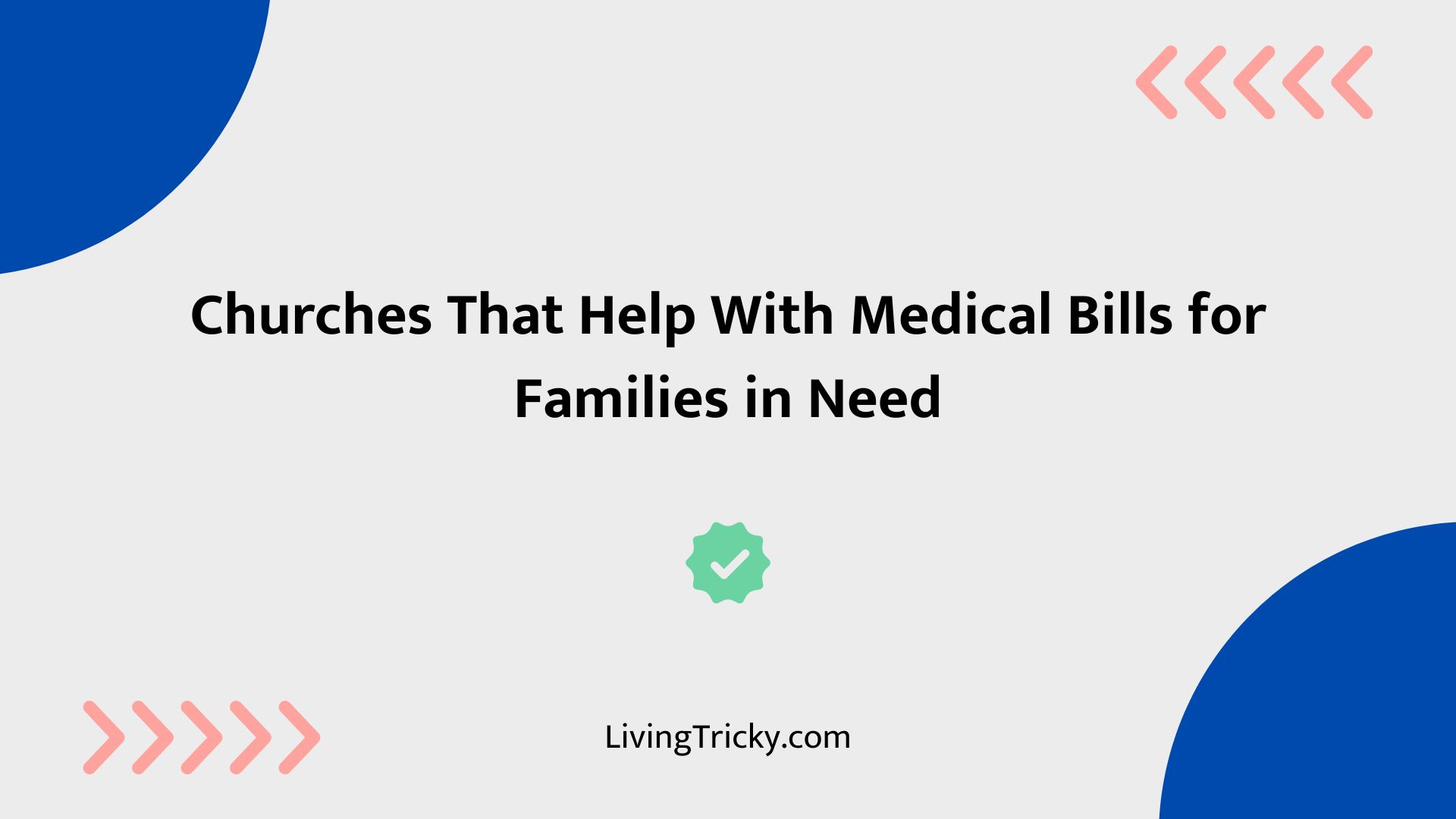Take the example of the Fund for Medical Assistance, which helps clergy and their families with medical expenses after using insurance and other resources. You’re likely curious about how churches like this assist with medical bills. They often provide financial aid, partner with organizations like RIP Medical Debt, and offer emotional support. But what exactly do these programs entail, and how can you access them?

Key Takeaways
- Many churches provide direct financial assistance for medical bills, focusing on uninsured or underinsured individuals with documented financial need.
- Assistance programs often require proof of income, medical expenses, and family size to determine eligibility, usually targeting families below 200% of the Federal Poverty Guidelines.
- Churches may also partner with medical debt relief organizations to purchase and forgive medical debt, maximizing the impact of donations.
- Beyond financial aid, some churches offer additional support such as financial coaching, help with government aid applications, and access to food pantries.
- Funds are typically distributed on a first-come, first-served basis or through fundraising efforts, with priority given to medically necessary care rather than routine copayments.
Churches Offering Direct Financial Assistance for Medical Bills
Several churches across the U.S. offer direct financial assistance to help individuals manage their medical bills.
These assistance programs often target those who are uninsured, underinsured, or financially needy. To qualify, applicants typically need to provide documentation of income, expenses, and medical bills.
This direct support can be a lifeline for those struggling with medical debt, helping them cover essential healthcare costs.
Such programs demonstrate churches’ commitment to helping their community members in need.
How Church-Based Assistance Programs Operate
Church-based assistance programs operate by providing critical financial support to individuals struggling with medical bills, particularly those who are uninsured or underinsured.
As you consider financial assistance requests, these programs often require documentation of need and operate within the limits of their resources. Support for medical care can include direct aid and partnerships with organizations like RIP Medical Debt to forgive debt.
Additionally, these programs typically offer emotional and spiritual support, recognizing the holistic impact of medical debt on families. Funds are often distributed on a first-come, first-served basis or through fundraising efforts.
Partnering With Medical Debt Relief Campaigns
As you investigate the complex issue of medical debt, partnering with organizations like RIP Medical Debt can be a powerful strategy for churches to alleviate this burden.
By fundraising, your church can purchase medical debt portfolios at a fraction of the cost, effectively erasing substantial amounts of debt for those struggling with healthcare expenses.
For every dollar you raise, an average of $100 in medical debt can be eliminated, multiplying your impact.
This partnership not only addresses immediate financial needs but also empowers your congregation to advocate for systemic changes that promote affordable medical care and reduce future debt.
Application and Eligibility for Church Financial Aid
If you’re seeking financial aid from a church to help with medical bills, you typically need to demonstrate financial need by providing detailed documentation of your income, expenses, and liabilities. Most church programs use a sliding scale; if your family’s income is under 200% of the Federal Poverty Guidelines, you may qualify for free health care. Eligibility often includes uninsured or underinsured individuals, ensuring assistance reaches those most in need. You’ll submit forms and supporting documents to the church or affiliated service. If you qualify, assistance may cover medically necessary care, but not routine copays.
| Step | Requirement | Documentation Needed |
|---|---|---|
| 1. Application | Complete forms, demonstrate need | Income, expense, liability records |
| 2. Eligibility | Sliding scale (up to 200% FPG) | Proof of income, family size |
| 3. Assistance Type | Medically necessary care | Medical bills, insurance status |
| 4. Submit | To church or health services | Signed forms, supporting documents |
Additional Support Services Provided by Churches
When you’re struggling with medical bills, churches don’t just stop at immediate financial aid—they’ll connect you with resources that support your well-being in other ways, too.
Here are some additional services they offer:
Churches provide comprehensive support, including financial coaching, government aid navigation, food assistance, rent support, and awareness events.
- Financial Coaching: Guidance on managing expenses and budgeting.
- Government Aid Navigation: Help you find and apply for state-sponsored programs.
- Food and Groceries: Pantries providing essential items.
- Rent and Utility Assistance: Financial aid for housing costs.
- Awareness Events: Educational initiatives on available support options.
Frequently Asked Questions
How Do I Ask Churches for Financial Help?
You can ask for financial help by reaching out to local church outreach programs, providing documentation of your financial situation, and clearly explaining how assistance will impact your life, encouraging a supportive response.
Where Can I Get Help With Medical Expenses?
You can investigate medical assistance programs like OhioHealth’s Financial Assistance Program, and community health resources such as the Salvation Army’s services, which offer support for medical expenses.
Do Churches Help Pay Utility Bills?
You can get help with utility bills through utility assistance programs offered by churches. Church outreach efforts often provide financial aid, partnering with local ministries to support families in need.
Can I Get Ongoing Rent Assistance From Churches?
You can seek ongoing rental assistance from churches, but it often depends on available resources and typically provides one-time aid. Contact local churches to inquire about their specific programs for ongoing support.
Conclusion
When churches combine compassionate commitment with careful consideration, they create a cradle of essential care—covering costs, counseling, and comfort. By cutting complex bills and connecting you to credible campaigns and coaching, these congregations craft comprehensive care that champions your cause. So, count on church-based support to soften your medical struggles, supplement your spirits, and simplify your search for solutions, making the journey through financial hardship a little less harrowing and a lot more hopeful.